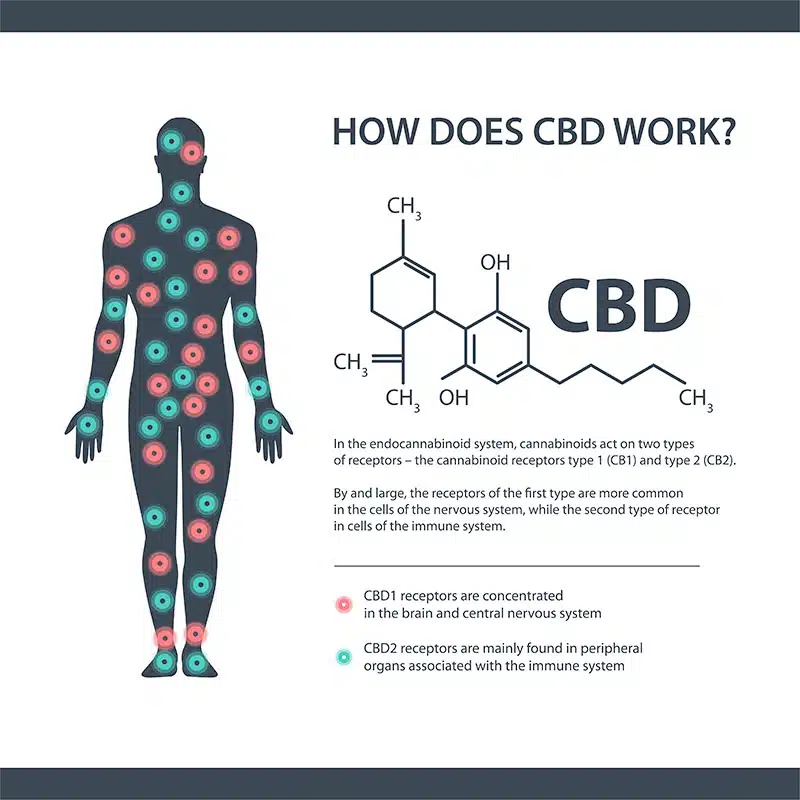
CBD, or cannabidiol, is quite popular these days. Nonetheless, people still do not fully know this compound. Moreover, there are some concerns regarding its safety as it is extracted from hemp. Therefore, people want to understand how does CBD work in the body.
CBD is available in many forms, from tinctures and edibles to creams and even vape UK CBD. CBD seems to be everywhere. So, let’s explore how this wonderful compound works and can be useful to you. and How do you vape properly?
CBD is one of the many compounds found in the cannabis plant. Unlike its more famous cousin, THC (tetrahydrocannabinol), CBD won’t get you ‘high’. Instead, users often report feeling more relaxed, at ease, or even free from certain types of pain after consumption.
To understand CBD’s magic, you must first get acquainted with the endocannabinoid system (ECS). This complex cell-signalling system regulates everything from mood, appetite, sleep, immune response, and even pain. Simply put, it ensures our bodies maintain internal balance or homeostasis.
Our body naturally produces endocannabinoids – small lipid-based neurotransmitters that bind to cannabinoid receptors located throughout our body. There are two primary types of receptors: CB1, mainly found in the brain, and CB2, scattered around the peripheral nervous system and immune cells [1].
So, where does CBD come into play? or Are disposable CBD vape pens safe?
Interestingly, CBD doesn’t just directly stimulate these receptors as THC does. Instead, CBD takes a more subtle approach. It elevates the concentration of the endocannabinoids your body naturally produces. Think of CBD as a supportive friend, boosting your body’s natural processes rather than taking over.
Furthermore, CBD has an affinity for a host of other receptors in the body. For instance, it interacts with serotonin receptors, which might explain why some people experience mood elevation after consuming CBD. It also connects with TRPV1 receptors, often associated with pain perception [2].
Given its dynamic interaction with the ECS and other receptors, it’s no wonder CBD has been linked to many potential health benefits. Some studies suggest it may help:
Kindly note that though CBD may have multiple health benefits, it is not a medication. Thus, one should use it responsibly and should not abuse it. Thus, this comprehensive guide will provide you with valuable information about guide to Choosing the Right CBD Vape Juice. It should not be used in place of medical treatment.
CBD interacts with the body in multiple and complex ways. Its potential benefits, stemming from its relationship with the ECS and other receptors, make it an exciting prospect in the world of natural wellness. As research evolves, we’ll undoubtedly discover even more about this fascinating compound. Whether you’re already a CBD advocate or simply curious, understanding how it works in the body can help you make informed decisions about your health journey.

This article was authored by: Dr. Preet Pal Singh Bhinder.
This article was peer-reviewed by Dr M Mansoor Siddique (PhD). Dr Siddique has over eight years of experience working with CBD and CBD products.
Disclaimer: All of our products are not intended to diagnose, treat or cure any disease. It is recommended to check with doctor before starting a new dietary supplement program. All CBD products sold have less than 0.2% THC content and abide by both EU an UK law.